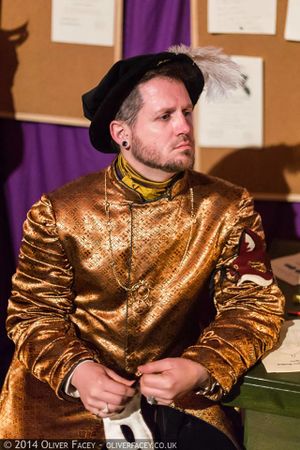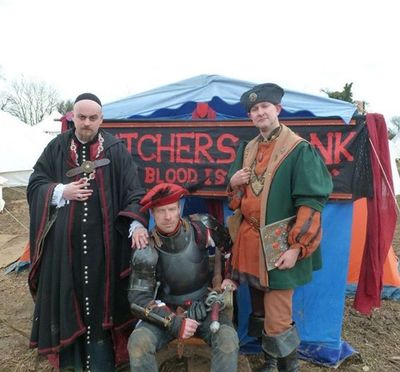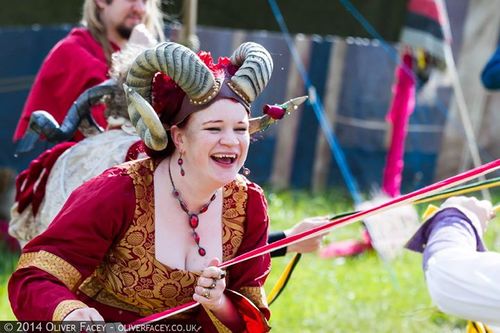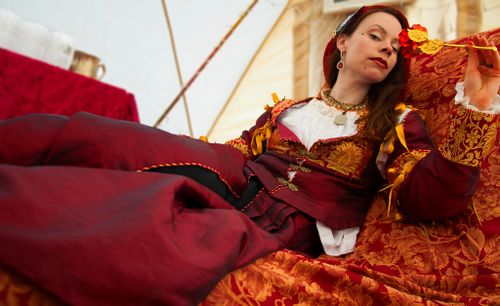The League people
One people with four five souls
The five great cities of the League give the nation her spirit. Her love of culture, the appreciation for fine things, opera, theatre, art and dance come from Sarvos. The determination to be the best, savouring every triumph, ferocious competition and ruthless nerve are born of Temeschwar. The problem-solving, imagination and sheer brilliance of Holberg has led to their mastery of surgery and engineering. The childlike delight with the cunning and the clever spreads from Tassato, where words are laced with more ambiguity than meaning and every ruse conceals another stratagem beneath it. Apulian, the newest city in the League aims to bring raw cunning and daring, a willingness to risk everything to succeed combined with an unmatched lust for success.
While the character of each city can be clearly seen, it is important to appreciate that this is one nation, bound by their Egregore and countless generations of migrations and marriages. "One people with four souls" is how the League still traditionally describes itself. Apulians might correct them on the number but the idea is that individuals and groups draw their strength and their character from the best qualities of the whole nation. Citizens of the League are always proud of their city and some strive to exemplify its attributes, but it is as if the qualities were in the cities themselves as much as the people who inhabit them.
True power in the cities is in the hands of the guilds. The guilds are exceptionally varied; some are organized to supply a single product or skill while others have no common basis beyond a group of people who join together to make money. There are guilds that are mercenary companies or theatre groups and some say the churches of the League are little more than guilds. What the guilds have in common is the expectation of loyalty, their ties are every bit as strong as the closest family. Loyalty to your guild is one of the great pillars of life in the League. The guilds have no formal powers so they use their stranglehold on economic existence in the cities to rule despite that; if you want to get ahead in the League - join a guild.
The League is committed to the Empire; Imperial law has brought peace and prosperity. The opportunities and the civilization that the Empire brings are things that many are prepared to die – or preferably kill – to preserve. Because the citizens of the League see themselves as the pre-eminent people of the Empire, they tend to view the Empire very possessively - as if the whole thing were arranged for their benefit.
League society greatly prizes loyalty, but scorns servility. Everyone is expected to give as good as they receive. They are relentlessly competitive in everything they turn their hands to, always seeking to outdo each other. They are not obsessed with money, as some claim, but money is a great way to judge success - a metric by which to quantify how well you have done. When outsiders point out that they seem to view life as a game they are playing then League citizens tend to agree - "someone is keeping score" is the usual response. But it is not a case of treating war, politics and trade like a child's game, it is a case of treating every game they play as seriously as if it were a war.
There is a merciless emphasis on the rules in the League. Crime is always a problem in the cities, but those who hold the reins of power regard it as a parasite, eating into their own profits. They ensure the laws are enforced with a brutal practicality and pragmatism, that stems in part from a cultural belief that those who break the rules have cheated in the game. It is not just the laws they hold in iron regard; a civil tongue, the customs of the city, her superstitions and her rules, are not to be broken. If an individual does not respect League society enough to play by the same rules as everyone else, how can you be sure what other rules they will break? Such people are not trusted and in business, a lack of trust is fatal to your chances of success.
Famed for a devotion to the arts, the League claims to have invented opera and theatre and take constant joy in the novel and the clever. They appreciate flair and wit, as signs of a sharp mind. Witty banter and verbal quips are considered fine entertainment in the League. Those who can employ wit skilfully are given more license than others to break the social rules of respect with less chance to cause a scene - or a duel.
This is not a nation of effete libertines. Innovative gewgaws and beautiful artworks are prized, but they are nothing compared to the pride these people take in the exercise of their will, their ambition and their success. A clever quip is no substitute for wealth, power, influence and the will to employ them to meet one's goals. The Merchant Prince may continue to make ironic comments when a situation turns deadly serious, but never make the mistake of thinking that they are not prepared to do what it takes to ensure the outcome they favour. More than one guest has made an inappropriate "joke" and discovered themselves ejected from someone's home - often through a first storey window.
Orcs and Humans
The League is currently the only nation in the Empire to incorporate both humans and orcs, after the Apulian Orcs successfully petitioned the League to let them join. Life in Grendel culture was tough, cut-throat and competitive. If you did well, you could enjoy luxuries and comfort, if you did poorly you would quickly find yourself carrying a pickaxe in the salt mines. Crucially, it was a long slow climb to the top, one success at a time, licking the boots of those above you then turning on them at the perfect moment. But it was a short, sharp drop to the bottom and those who crossed their betters and lost were rarely seen again. Joining the League and becoming a citizen of the Empire means that politics is no longer such a fatal game. Many Apulians may have been ambitious, with grand political goals, but they always had to tread somewhat carefully and watch out for a knife in the spine. Now, they're free to reach for lofty goals without the potential for a dagger in the night for challenging the wrong person.
The Apulian Orcs are a new addition to the League, having joined the nation during the Summer Solstice 385YE. There is enough information on the League pages to create an Apulian character, but players are welcome to read the Grendel pages if they want more detail on the background of their character before they joined the League. Anyone intending to play an Apulian Orc should make sure to also read the orc species brief to ensure they have a full understanding of the requirements and limitations of playing an orc.
Any gutter urchin might be a merchant prince one day, so you must be careful, cousin. Kick a puppy today, and tomorrow it might have grown up to be the hound that has your hand in its jaws ...
Two Gentlemen of Tassato, Act I, scene iiNames in the League
Each of the five cities of the League has a different flavour. We suggest Italian names for Sarvossian characters, Eastern European names for Temeschwari characters, German or Dutch names for Holberghan characters, Portuguese names for Tassatan characters, and anglicised Scots Gaelic for Apulian characters.
Most people in the League use their city as part of their name. They may use one of a number of connecting words - "di", "de", "van" and "of" are all popular and are used interchangeably across the League - but they firmly indicate the city they are loyal to. This is usually the city of their birth, but not always. Many League citizens have cause to move from one city to another at one time and some find themselves more at home in their new city than the place of their birth.
Many individuals do not bother with a family name, although they may take some element of their name from their guild.
Sample names
- Elsbet van Temeschwar, of the Black Raven
- Bertolli Giacomi di Sarvos, of the Giacomi Carta
- Neave de Apulian, of the Broken Blades
N.B. Whilst some names are inspired by real world names which may be given to specific genders, Empire is a gender blind setting and people of any gender choose any name they like that is appropriate to their nation.
Further Reading
Core Brief
Additional Information



